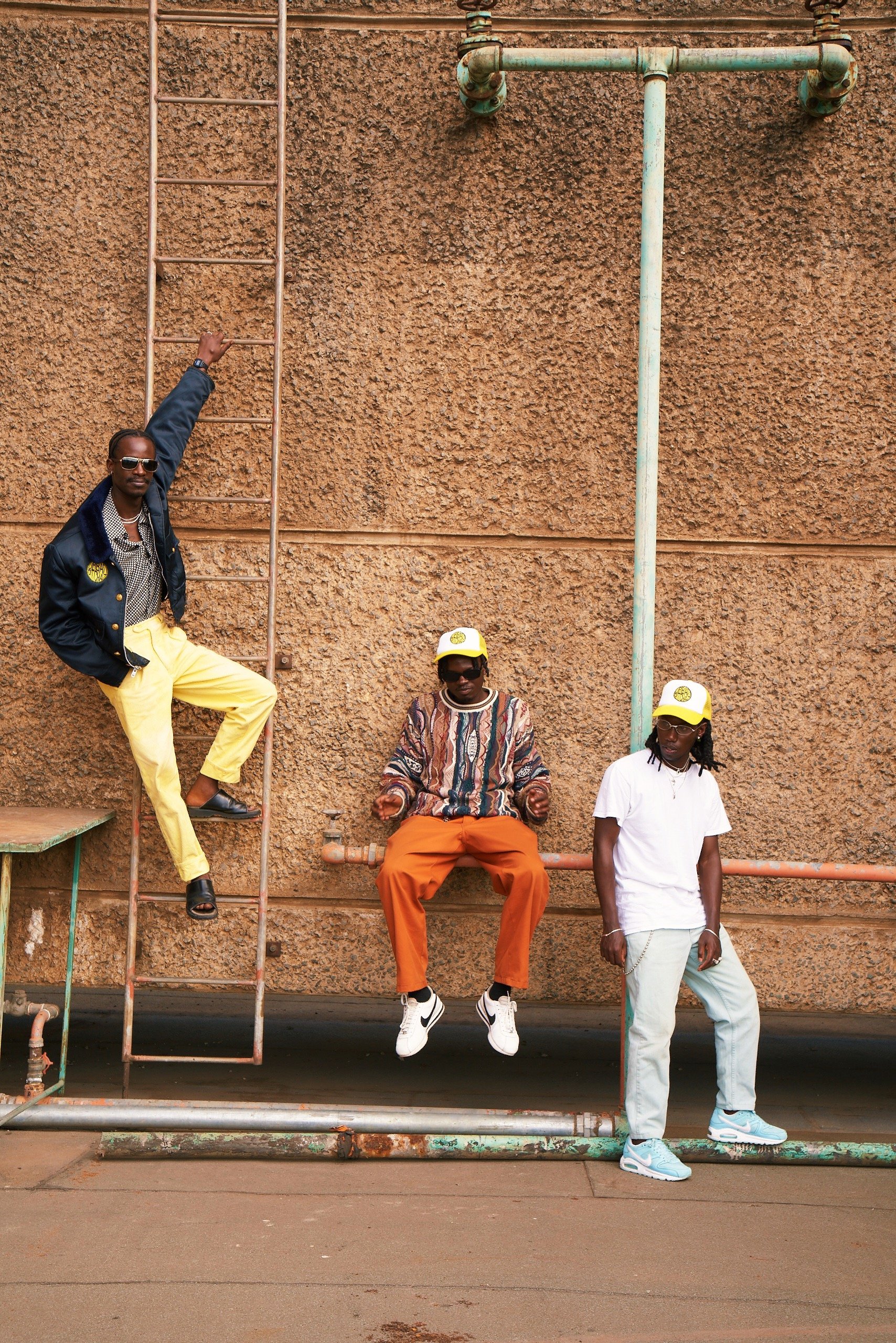Maandy’s music sets traditional gender roles ablaze
“When people look at me, I want them to see a bad ass bitch”. This declaration is an introduction to Maandy’s musical persona. Dubbed Kabaya, after the name of her debut album and fan favorite track, the Nairobi native is no stranger to tapping into her femme-fatale aura to push boundaries of Kenyan rap. Her recently released sophomore album sees her continue to raise her middle finger at traditional gender roles. “I feel like because I have the liberty to talk about whatever I want in my music, I want to see how far I can take it,” she says audaciously, “Man, really I want to fuck up all of those traditions.”
The name of the album, a nod to her multifacetedness, is a combination of two identities she embodies. “The album for me is both sexy and gangsta,” she explains, “the gangsta side is the one that takes risks, and the more sexual side is, well, freaky,” which combine to form Frisky. This album spotlights the tales of “young women in Nairobi.” She draws inspiration from a combination of her own experiences, to relate them to those of the women around her who form the majority of her audience. The kind of women that know they “can choose to test the limits and not even think twice about it,” that they are allowed to “feel like they are at their best all the time. And when they don't, [they] give themselves 10 minutes to feel bad before jumping back on that horse.” The latter is particularly important to her. Maandy admits that it took her a while before she was able to come into her own in this way; she “doesn’t want [her] listeners to take as long,” to feel liberated.
Whilst the decision to release her debut album was more about “having fun and having a body of work for people to know [her] from,” she admits that Frisky is “more business oriented.” Maandy is aware that more is being demanded of her with this sophomore offering; “the quality, the look, the content, all of it.” And to rise to the occasion, she is pulling from all corners of her arsenal with her content. From party starters like (Relax), to previously released singles fans are familiar with (Shash na Lipgloss and Sirudi Home Refix), a freestyle (name), and even a vocal performance (Magizani which samples RnB artist Tamia’s So Into You). The album leaves no genre untouched.
But even with all her skills on display, it's her affinity for storytelling that stands out. The multilingual artist glides between English and Kiswahili to rope listeners into tales in each track. In the tongue-in-cheek Money Man she interrogates a man about his ability to financially support her (ok hii ni chance nakupea / boy child anza kujitetea). And in the spicy Forbidden Fruit she lets us into a secret rendezvous with her best friend’s man that she swears she didn’t mean to happen (I swear sikupanga ikue hivi, situation got too sticky). And in the album opener, Mambo Gani the tables turn as she addresses the stories gossip blogs continue to fabricate about her as a result of her rising popularity.
After the staggering success of her first album, Maandy feels like the pressure to live up to this has been met with it’s fair share of challenges. “Putting out content can be hectic” she says matter of factly. Whether it’s due to a late feature (which is why Frisky only features Fena Gitu, Breeder LW and Ndovu Kuu, she confesses) or simply because creating said content is often costly, Maandy doesn’t hide her relief (and exhaustion) that she was able to do it in spite of it all. Admin challenges aside however, what has been most testing is the increasingly blurred line in what audiences perceive to be the difference between Maandy the artist, and Amanda the woman. “In my natural state, I like calm, peace and quiet, so when I meet people out here who know me as an artist, they think the things I do as ‘Maandy’ is faking it when it's not.” Of course, this is a testament to how well the young artist has tapped into parts of her identity to curate this musical personality. This speaks to how intertwined social media and the music industry are to the extent that her internet and real-life persona spill into each other. While this sounds like a good thing, it can also be unfavourable. “I like to think of it like when you're in the office or when you are with your close friends, you’re not really the same person,” she explains, “it’s the same for me but people tend to misunderstand that and overstep. I don’t know if I'll ever get over how much that bothers me.”
It would be remiss however, for the artist not to acknowledge how her personna plays a role in the way her music and brand are received. “It definitely helps, sadly because of the way women are viewed in society I know the way I carry myself helps.” It’s a tricky space to be in; embracing your sexuality as an act of rebelliousness, while knowing that some of your audience might not consume it that way. Maandy acknowledges it’s even trickier because men make up a large part of her listeners. But like the ethos of Frisky, it’s the women that are the intended audience for her music, “I don’t feel the pressure to be Kabaya from anyone but especially not the guys,” she says with certainty, “I’m not doing this for them, I’m doing it for the women.”
Frisky is out now on all streaming platforms.





